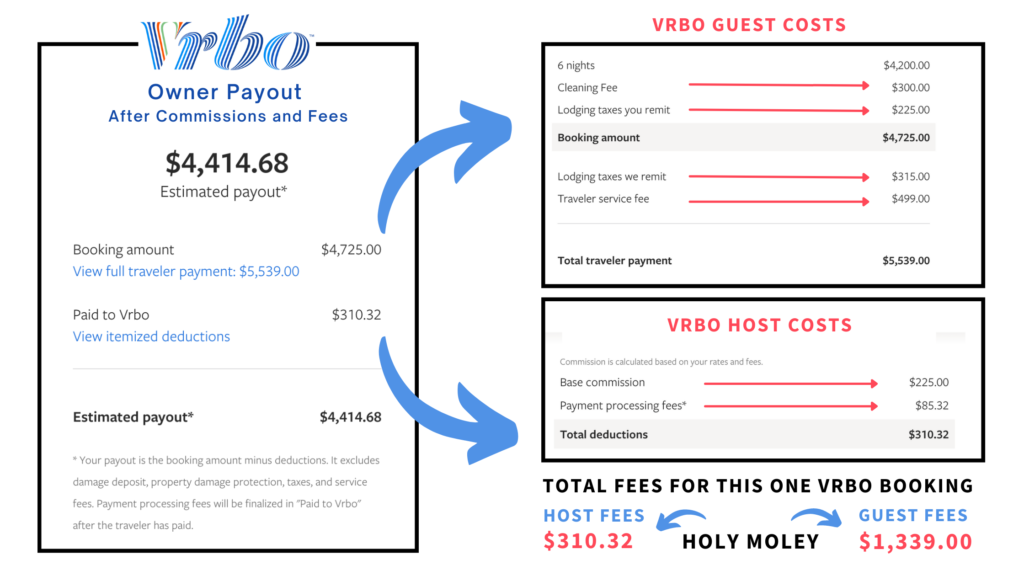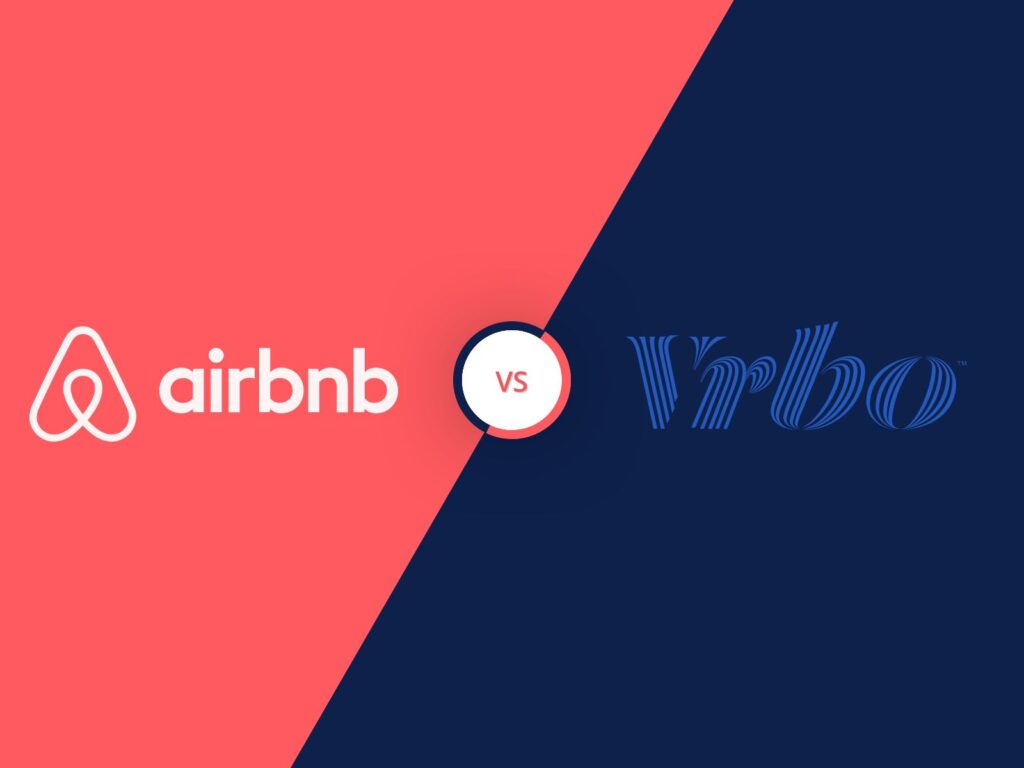What is Vrbo and How Does it Work? | [2023]

Vrbo
Vrbo
Are you familiar with Vrbo? If so, you should read this article. We’ll talk about Vrbo. See more below.
Vrbo (short for “Vacation Rentals By Owner”) is an online vacation rental marketplace where travelers can book a variety of properties for short-term stays, including homes, apartments, villas, cabins, and condos. The platform was founded in 1995 and was acquired by HomeAway, Inc. in 2006. HomeAway, in turn, was acquired by Expedia Group in 2015.

Vrbo allows property owners to list their properties for rent and offers travelers the ability to search and book properties in locations all around the world. The platform offers a variety of features and tools for property owners, including the ability to manage bookings, communicate with guests, and process payments. For travelers, offers a range of search filters to help find the perfect vacation rental, as well as secure booking and payment options.
Vrbo has become a popular alternative to traditional hotels for travelers who want more space, privacy, and the ability to cook meals in a home-like environment while on vacation.
What is Vrbo
Vrbo (short for “Vacation Rentals By Owner”) is an online vacation rental marketplace where travelers can book a variety of properties for short-term stays, including homes, apartments, villas, cabins, and condos. Vrbo was founded in 1995 and is now a part of Expedia Group.
Property owners can list their properties for rent on, and travelers can search for and book properties in locations all around the world. Vrbo offers a range of features and tools for property owners, including the ability to manage bookings, communicate with guests, and process payments. For travelers, Vrbo offers a variety of search filters to help find the perfect vacation rental, as well as secure booking and payment options.
Vrbo has become a popular alternative to traditional hotels for travelers who want more space, privacy, and the ability to cook meals in a home-like environment while on vacation.
How does Vrbo work?
Vrbo works by connecting property owners who want to rent out their vacation rental properties with travelers who are looking for short-term stays in those locations. Here is a step-by-step overview of how Vrbo works:

- Property owners list their vacation rental properties on Vrbo, including details such as the property type, location, photos, availability, and pricing.
- Travelers search for properties on by entering their destination, travel dates, and any specific features they are looking for in a rental property. Vrbo uses advanced search algorithms and filters to show the most relevant properties to the traveler.
- Travelers can review the property details, including photos, amenities, reviews, and owner information, before booking the property directly through the Vrbo platform.
- Property owners receive a booking request from the traveler and can accept or decline the request based on their availability and booking policies.
- Once the booking is confirmed, Vrbo handles the payment process, collecting payment from the traveler and releasing it to the property owner after the stay is complete.
- Throughout the booking process and stay, Vrbo offers support and help to both property owners and travelers, including 24/7 customer service and secure communication channels.
Omit, Vrbo provides a simple and convenient way for property owners to rent out their vacation rental properties and for travelers to find and book unique, high-quality accommodations in destinations all around the world.
What are the Fee Schemes of VRBO?
Vrbo charges fees to both property owners and travelers for using its platform to list and book vacation rental properties. Here are the main fee schemes of Vrbo:
- Service Fee: Vrbo charges a service fee to travelers for each booking made through its platform. The service fee varies based on the total cost of the booking, but typically ranges from 5% to 15% of the booking total.
- Commission Fee: Vrbo charges a commission fee to property owners for each booking made through its platform. The commission fee varies based on the region and the property type, but typically ranges from 5% to 15% of the booking total.

- Subscription Fee: Vrbo offers a subscription program called Owner that gives property owners access to more features and tools for managing their rental properties. The subscription fee ranges from $499 to $1,499 per year, depending on the number of properties you have listed.
- Payment Processing Fee: Vrbo charges a payment processing fee for each booking made through its platform. The payment processing fee is typically around 3% of the booking total.
- It’s important to note that Vrbo’s fees can vary based on some factors, including the property type, location, and time of year. Property owners and travelers should carefully review fee structure and policies before listing or booking a vacation rental property on the platform.
Vrbo vs. Airbnb: Critical Distinctions
Vrbo and Airbnb are both popular vacation rental platforms that allow property owners to rent out their properties to travelers. While they share some similarities, there are also several critical distinctions between the two platforms. Here are a few of the key differences:
- Property Types: Vrbo is primarily focused on vacation rental homes, apartments, and condos, while Airbnb offers a wider range of property types, including entire homes, private rooms, and shared rooms.
- Booking Process: Vrbo allows property owners to accept or decline booking requests manually, while Airbnb uses an instant booking system that automatically approves bookings as long as certain criteria are met.
- Service Fees: Vrbo charges a service fee to travelers for each booking, while Airbnb charges a combination of a service fee and a host fee.

- Commission Fees: Vrbo typically charges lower commission fees to property owners than Airbnb, but the exact fee structure can vary based on the region and property type.
- Traveler Demographics: Airbnb has a younger and more budget-conscious traveler demographic, while Vrbo attracts an older and more affluent demographic.
- Property Management: offers more advanced property management tools and features for property owners, while Airbnb focuses more on the guest experience.
- Policies and Regulations: Vrbo tends to be more aligned with traditional vacation rental policies and regulations, while Airbnb has faced more scrutiny and regulation in some cities and regions.
Omit, both Vrbo and Airbnb offer unique advantages and disadvantages for property owners and travelers. Choosing between the two platforms depends on your specific needs and preferences as a host or guest.
How to Host on VRBO
Hosting on Vrbo involves listing your vacation rental property on the platform and managing the rental process. Here’s how to get started:
- Create an account: If you haven’t already, create an account on. You’ll need to provide your name, email address, and a password.
- List your property: Click the “List Your Property” button and enter the details of your rental property, including location, property type, number of bedrooms and bathrooms, amenities, and pricing. You’ll also need to upload photos of your property.
- Set your availability: Use calendar to say when your property is available for rent and when it is not. You can also set least and most stay requirements.

- Choose your booking settings: You can choose to accept or decline booking requests manually, or you can set up Instant Book, which allows travelers to book your property instantly without needing your approval.
Read More
- Set your pricing: allows you to set your own pricing for your rental property. You can choose to charge a flat rate per night, per week, or per month, or you can set a custom pricing structure.
- Respond to inquiries: Once your property is listed, you’ll start receiving inquiries from travelers interested in renting your property. Make sure to respond to inquiries promptly and provide helpful information to potential guests.
- Manage bookings: When a traveler books your property, you’ll receive a notification from. Make sure to communicate with the traveler to confirm details of the booking and answer any questions they may have. You’ll also need to prepare your property for the guest’s arrival and arrange for key exchange, if necessary.
- Collect payment: collects payment from the traveler and sends it to you after the stay is complete. You’ll receive payment minus commission fee and any applicable taxes and fees.
- Leave a review: After the guest’s stay, leave a review of the guest on platform. This will help future hosts and guests make informed decisions.
Hosting on Vrbo requires attention to detail and good communication skills, but it can be a rewarding way to earn extra income from your vacation rental property.
Also Read About The Man shake
Frequently Asked Questions :
Airbnb offers a specialized safety feature for solo travelers. It allows them to share their reservation itinerary with family and friends. The feature also offers safety tips and provides questions to ask hosts. Vrbo has fewer complications regarding guest safety since they only offer private rentals.
Who are Airbnb’s competitors? Airbnb competitors include websites like Vrbo, Booking.com, Tripadvisor, Agoda, Expedia, TUI Villas, TravelStaytion, HomeToGo, Plum Guide, and Google. Not all of them are vacation rental marketplaces.
We use encryption and advanced patented tokenization services to protect your transaction. When you book and pay through our payment system, you’re eligible for the Book with Confidence Guarantee.
Conclusion
Vacationers can reserve a variety of homes, apartments, villas, cabins, and condos for brief visits through the internet vacation rental marketplace known as Vrbo (short for “Vacation Rentals By Owner”).
HomeAway, Inc. purchased the platform in 2006 after it was launched in 1995. In turn, Expedia Group bought HomeAway in 2015.
Travellers can look for and book accommodations on Vrbo in destinations all over the world, and property owners can post their rental properties there as well.
We trust that you have learned something about Vrbo from this article. Please let us know in the comments area if you have any questions.







